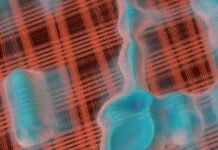Neuro, a term derived from the Greek word “neuron,” which means “nerve,” serves as a fundamental prefix for words related to the nervous system and neural processes. Neurobiology, neurochemistry, and neurology are just a few examples of disciplines that delve into the intricate workings of the nervous system. At its core, neuro refers to anything associated with nerves or the nervous system, a complex network of cells that play a pivotal role in transmitting information within the body. This expansive realm encompasses the study of neurons, synapses, neurotransmitters, and the myriad processes that govern our thoughts, sensations, and movements. The prefix “neuro” weaves through scientific endeavors, unlocking the mysteries of the brain and offering profound insights into the essence of human existence.
Neurology, a prominent field within the broader neuro umbrella, explores the intricate web of the nervous system’s anatomy, physiology, and pathology. Neurologists, specialists in this domain, scrutinize the complexities of the brain, spinal cord, and peripheral nerves to comprehend the manifestations of various neurological disorders. These disorders can range from the well-known, such as epilepsy and Parkinson’s disease, to the more elusive, like rare genetic conditions affecting neural development. The field of neurology plays a crucial role in diagnosing and treating neurological ailments, often relying on advanced imaging techniques, electrophysiological studies, and clinical assessments to unravel the mysteries of the human brain.
Delving deeper into the microscopic realm, neurobiology unravels the secrets of the nervous system at the cellular and molecular levels. Neurobiologists scrutinize the structure and function of neurons, the building blocks of the nervous system, investigating their diverse types and intricate connectivity. The study of neurogenesis, neuroplasticity, and synaptic transmission provides a nuanced understanding of how the brain adapts and evolves throughout life. Cutting-edge technologies, such as optogenetics and brain imaging, enable neurobiologists to peer into the intricacies of neural circuits, unraveling the mysteries of cognition, behavior, and consciousness. Neurobiology, in its relentless pursuit of knowledge, seeks to decipher the code that underlies the enigmatic dance of neurons, unlocking the secrets of our thoughts and emotions.
In the realm of neurochemistry, the focus shifts to the molecular players that govern the communication between neurons. Neurotransmitters, the chemical messengers that transmit signals across synapses, take center stage in this intricate ballet of biochemical interactions. Neurochemists explore the synthesis, release, and reuptake of neurotransmitters, unraveling the delicate balance that maintains the proper functioning of the nervous system. Imbalances in neurochemical processes are implicated in a myriad of neurological and psychiatric disorders, from depression to schizophrenia. The field of neurochemistry, through its meticulous analysis of molecular mechanisms, strives to identify potential targets for therapeutic interventions, aiming to restore equilibrium to the delicate symphony of neurotransmission.
The integration of neuroscientific knowledge extends beyond the confines of medical and biological disciplines, infiltrating diverse fields such as psychology, artificial intelligence, and even philosophy. In psychology, the burgeoning field of neurocognition seeks to bridge the gap between the mind and the brain, exploring how cognitive processes emerge from neural activities. Advances in neuroimaging technologies, such as functional magnetic resonance imaging (fMRI) and electroencephalography (EEG), have provided unprecedented insights into the neural underpinnings of perception, memory, and decision-making. The synergy between psychology and neuroscience continues to reshape our understanding of human behavior, challenging traditional notions of consciousness and free will.
Artificial intelligence (AI), inspired by the brain’s computational prowess, draws extensively from neuroinformatics and neural networks. Neural networks, modeled after the interconnected neurons in the brain, form the backbone of machine learning algorithms, enabling computers to learn from data and make decisions. The burgeoning field of neuro-inspired computing seeks to mimic the brain’s efficiency and adaptability, pushing the boundaries of AI capabilities. As researchers delve into neuromorphic computing, where hardware is designed to emulate the brain’s architecture, the lines between biological and artificial intelligence blur. Neuro, in this context, becomes a bridge between biological intelligence and its synthetic counterpart, propelling humanity into an era where machines may one day exhibit cognitive capacities akin to our own.
Philosophy, with its perennial quest to understand the nature of consciousness and the self, engages with neuroscientific findings to unravel the mysteries of the mind. The age-old debate of mind-body dualism, pondered by philosophers such as Descartes, takes on a neurocentric perspective as advancements in neuroscience illuminate the intimate connection between brain and consciousness. Neurophilosophy, an interdisciplinary endeavor, explores the implications of neural processes on our perception of reality, moral reasoning, and the nature of subjective experience. The intricate dance of neurotransmitters and the firing of neurons become the brushstrokes on the canvas of consciousness, inviting philosophers to contemplate the profound implications of neuroscientific revelations.
The multifaceted nature of neuroscientific inquiry extends into clinical applications, where the understanding of neurological processes becomes a linchpin for medical interventions. Neurological disorders, ranging from common conditions like migraines to rare genetic anomalies, present a myriad of challenges for clinicians. The field of neurology, armed with diagnostic tools and therapeutic interventions, endeavors to alleviate suffering and improve the quality of life for individuals grappling with neurological ailments. As advancements in neuroimaging techniques, such as magnetic resonance imaging (MRI) and positron emission tomography (PET), continue to refine our ability to visualize the brain’s structures and functions, neurologists gain unprecedented insights into the intricacies of neurological disorders. The quest for novel treatments and therapies remains an ongoing journey, as the neuro prefix encapsulates the evolving landscape of medical science.
Neuroscience also plays a pivotal role in shaping public discourse and policy, particularly in areas concerning mental health and neuroethics. The intersection of neuroscience and ethics gives rise to neuroethics, a field that grapples with the ethical implications of neuroscientific advancements. Questions surrounding cognitive enhancement, brain-computer interfaces, and the implications of neuroscientific findings on our understanding of human nature prompt ethical deliberations. Neuroethics serves as a compass, guiding society in navigating the ethical quandaries posed by emerging technologies and scientific discoveries. The prefix neuro, in this context, represents not only a scientific endeavor but also a societal responsibility to wield the power of neuroscience with ethical discernment.
The journey into the intricate realms of neurology, neurobiology, neurochemistry, and beyond is marked by collaboration across diverse disciplines. Neuroscientists, neurologists, psychologists, ethicists, and technologists converge to unravel the mysteries of the nervous system. Collaborative efforts lead to groundbreaking discoveries that transcend the boundaries of individual fields, fostering a holistic understanding of the intricate dance of neurons. The synergy between disciplines fueled by the common prefix neuro underscores the interconnectedness of knowledge and the necessity for interdisciplinary approaches in comprehending the complexity of the nervous system.
Technological innovations continue to amplify our capacity to explore and manipulate the brain, pushing the frontiers of what was once deemed impossible. Optogenetics, a revolutionary technique that allows researchers to control neural activity with light, offers unprecedented precision in dissecting neural circuits. Brain-machine interfaces, another frontier of neurotechnology, hold the promise of restoring lost sensory or motor functions and bridging the gap between the human brain and external devices. The neuro prefix resonates in the realm of neurotechnology, where innovation converges with the intricacies of neural processes to shape the future of human-machine interactions.
As we navigate the ever-expanding landscape of neuroscientific knowledge, the prefix neuro becomes a symbol of our collective endeavor to unravel the mysteries of the nervous system. It transcends the boundaries of language, encapsulating the essence of a scientific journey that spans from the microscopic intricacies of individual neurons to the macroscopic understanding of complex neural networks. Neuro beckons researchers, scholars, and enthusiasts alike to embark on a voyage of discovery, pushing the boundaries of human knowledge and reshaping our understanding of what it means to be sentient beings in a world intricately woven with neural threads. The prefix neuro, echoing through the corridors of scientific inquiry, invites us to marvel at the wonders of the brain and invites us to explore the uncharted territories of the mind.
In conclusion, the omnipresence of “neuro” in scientific discourse reflects the profound impact of neurological sciences on our understanding of life, consciousness, and the very fabric of our existence. Neuro, as a prefix, serves as a beacon guiding researchers through the uncharted territories of the nervous system, from the macroscopic structures studied in neurology to the microscopic intricacies explored in neurobiology and neurochemistry. Beyond the confines of traditional scientific disciplines, neuro extends its influence into psychology, artificial intelligence, and philosophy, weaving a tapestry that connects the intricacies of neural processes to the broader tapestry of human experience. As we unlock the secrets of the brain, the prefix “neuro” becomes a key that opens doors to new realms of knowledge, propelling us into a future where the boundaries between the biological and the artificial, the mind and the machine, continue to blur.

















